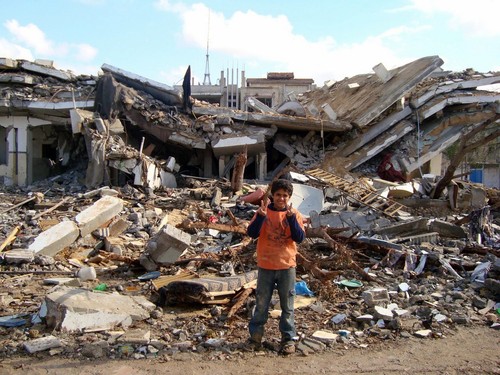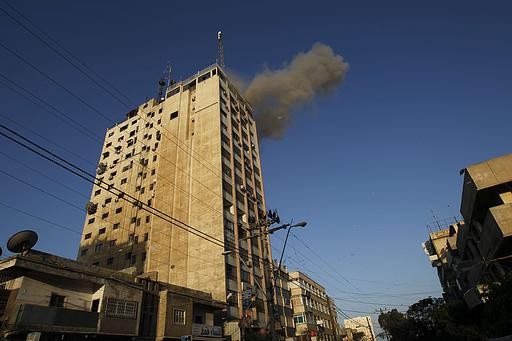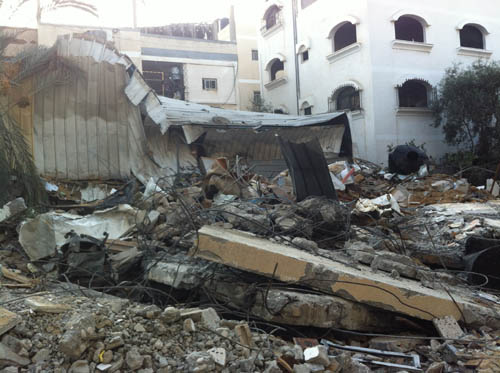Adalah, Al Mezan oppose Israel's rejection of compensation suit resulting from declaration of Gaza as 'enemy territory'
Adalah – The Legal Center for Arab Minority Rights in Israel and Attorney Mohammad Jabareen for Al Mezan Center for Human Rights (Gaza) filed a response in the Beer Sheva District Court on 25 October 2016 to Israel's motion to dismiss a tort lawsuit filed on behalf of a Palestinian teen who was seriously wounded by Israeli military gunfire in his Gaza home in November 2014, two months after Israel's "Operation Protective Edge" had concluded.
The state filed its motion to dismiss the lawsuit, initially submitted on behalf of 15-year-old A.N. and his parents, on the grounds that Gaza is "enemy territory," as declared by the government of Israel on 26 October 2014. The declaration, signed by Israeli Prime Minister Benjamin Netanyahu, was applied retroactively from 7 July 2014.
Amendment No. 8 of Israel's Civil Wrongs Law, which was approved in 2012, introduced near-insurmountable obstacles to access to Israeli courts and thus compensation and redress for civilian victims harmed by acts of the security forces carried out in Gaza – even acts that violate international law – and consolidated the state’s immunity from tort actions brought against it.
This amendment exempted the state of Israel from paying any damages to "persons who are not citizens or residents of Israel, and are residents of a territory outside Israel that has been declared an 'enemy territory' in a governmental decree."
In response to the state's motion to dismiss the tort lawsuit, Adalah Attorney Nadeem Shehadeh, together with Attorney Mohammad Jabareen for Al Mezan, maintain that the amendment to the Civil Wrongs Law is yet another attempt to circumvent the 2006 Supreme Court ruling (HCJ 8276/05, Adalah, et. al. v. The Defense Minister, et. al.), in which the court struck down an earlier provision that sweepingly exempted the state from liability from damages resulting from acts by Israeli security forces carried out in areas declared by the Israeli defense minister as "conflict zones" as a violation of the Basic Law: Human Dignity and Liberty (1992).
The response also emphasizes that the amendment essentially grants a sweeping exemption to the state from responsibility for damage or harm caused by its actions.
Under this amendment, "illegal, improper, and even criminal acts will go unanswered for and no one will be held responsible for them. The victims of such acts will be left without any support, the response reads. The law sends out a dangerous and extreme message that the lives and rights of those injured in Gaza have no value, as the courts will not come to their aid, and those who caused their injuries will face no punishment.
In addition, Adalah stressed that the retroactive application of the order constitutes a violation of constitutional rights: "This section must be annulled due to the harm it poses to established and recognized constitutional rights and to the legitimate expectation on the part of those harmed and whose petitions have been based on tort claims… The law harms the legitimate interests of those who have filed claims and expect the legal process in their cases will be completed without interference from third parties."
Adalah argued that the purpose of the article is improper: "The subjective purpose of the amended law is to revoke the right of residents of the occupied territories, residents of 'enemy states', and 'terrorist organizations' activists to fair compensation for damages caused by the security forces, even when not in the framework of wartime operations… [The amendment] seeks to implement the improper purpose of releasing the state from all responsibility for damages in territory declared enemy territory by the state itself."
Adalah and Al Mezan therefore ask the court to reject the state's request to dismiss the lawsuit, and to rule that Amendment 8 to the Civil Wrongs Law is unconstitutional.
Case Citation: C.C (Beer Sheva') 45043-05-16 A.N. (minor) et al. v. The State of Israel
READ: Adalah’s response to Beer Sheva District Court (Hebrew)
RELATED LINKS:
Gaza Two Years On: 27 cases of suspected war crimes, 0 indictments
Related Press Releases:
- Supreme Court Cancels Racist Law, Ruling that Palestinians Harmed by Israeli Military in the Occupied Palestinian Territories are Eligible for Compensation from Israel
- Israeli Supreme Court approves regulations that ban Palestinians from Gaza from entering Israel for compensation cases against the Israeli military

















